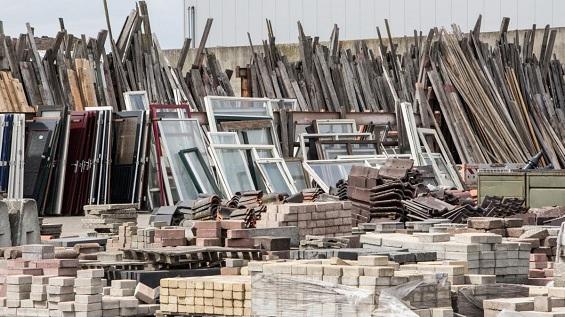As the world becomes more environmentally conscious, sustainable practices are extending to all aspects of our lives, including home improvement. When undertaking renovation or remodeling projects, it’s important to consider the impact of the materials you use. Recycling has emerged as a key strategy in reducing waste and conserving resources. Fortunately, many common home improvement materials can be recycled, contributing to a greener and more eco-friendly approach to enhancing your living space.

Recyclable Home Improvement Materials
Metal
Metal materials like aluminum, steel, and copper are highly recyclable. These materials are commonly found in roofing, plumbing fixtures, and electrical components. When renovating, consider salvaging these metals and sending them to recycling centers. This not only reduces the demand for new metal production but also minimizes the amount of waste sent to landfills.
Concrete
Concrete is a durable material often used in driveways, pathways, and foundations. During demolition, concrete can be broken down and recycled as aggregate for new construction projects. Recycling concrete reduces the need for new raw materials and lessens the environmental impact of concrete production.
Wood
Wood is a versatile material used in various aspects of home improvement. Instead of sending wood waste to landfills, explore recycling options. Reclaimed wood can be used for new projects, contributing to a rustic and eco-friendly aesthetic. Additionally, some communities offer wood recycling programs, where wood waste is turned into mulch or other useful products.
Glass
Glass is commonly found in windows, doors, and light fixtures. Rather than disposing of old glass, consider recycling it. Glass recycling conserves energy and reduces greenhouse gas emissions. Recycled glass can be turned into new glass products or used as aggregate in concrete.
Plastics
Plastics are prevalent in various home improvement products, from plumbing pipes to insulation materials. While recycling plastics can be more complex due to different types and compositions, some plastics can be recycled. Check with your local recycling center to find out which types of plastics are accepted and ensure proper sorting.
Tiles and Masonry
Ceramic tiles and masonry materials can often be recycled or repurposed. If you’re removing old tiles or bricks, consider donating them to organizations that specialize in architectural salvage. These materials can find new life in other construction projects and help reduce demand for new production.
Metal Fixtures and Appliances
During a home renovation, you might replace fixtures like faucets, light fixtures, and appliances. Many of these items contain recyclable materials like metals and electronics. Look for recycling programs in your area that accept these items, ensuring that valuable resources are recovered.
We would also recommend this : Unveiling the Elements of a Modern Exterior Home Design
Embracing sustainable practices in home improvement involves more than just choosing energy-efficient appliances or low-impact materials. Recycling plays a crucial role in minimizing waste and conserving resources. By responsibly recycling common home improvement materials such as metals, concrete, wood, glass, plastics, tiles, and fixtures, you contribute to a more eco-friendly and environmentally conscious living environment. As you plan your next home renovation project, remember that every effort to recycle counts toward a greener future.